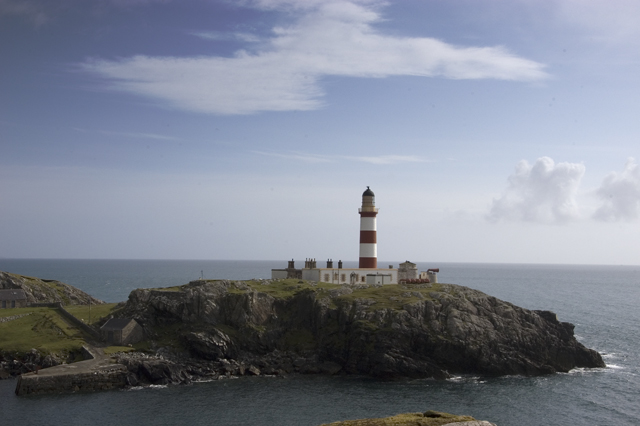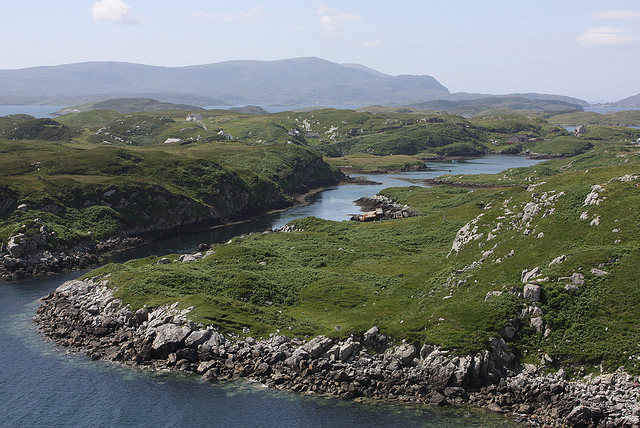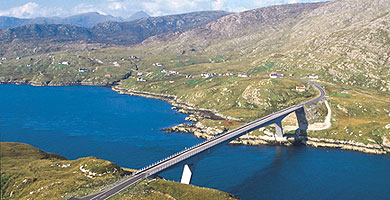Not surprisingly, the tenants on a private island in Scotland’s rustic Outer Hebrides have taken the owner up on his offer to hand over the property free of charge.
On November 6th, with a strong “yes” vote to take control of their island home, life changed forever for the 300-odd residents of Scalpay, a more than 6,000 acre island found off the inner coast of the Isle of Harris.
Part of Scotland’s beautiful and remote Outer Hebrides, the island is a vast and scenic stretch of relative wilderness; rolling treeless hillsides culminating in the “mountain” of Beinn Scorabhaig, and dotted with small lochs, one of which even possesses a tiny isle with the remains of an ancient fort. On a narrow peninsula sits the picturesque Eilean Glas, the oldest lighthouse in the Western Isles.
Isolated from the Scottish mainland, the Outer Hebrides have a strong and independent character, one needed to survive in such a foreboding environment. Battered by constant North Atlantic winds and violent winter storms, residents have historically eked out a life on the chilly Western Isles with fishing, limited farming, and raising hardy sheep renowned for their use in making waterproof Harris Tweed.
Like many small island communities, however, this one has a problem – people, particularly the youth, are leaving.Compared to the difficult and rustic lifestyle found in the Outer Hebrides, the idea of a cosmopolitan life in Glasgow or Edinburgh has proven attractive for many Hebrideans, leading to the widespread concern that the islands are becoming depopulated.
According to the Scottish government, the last century has seen the Western Isle’s population cut nearly in half, and the average age of residents is significantly older than on the mainland.
For Scalpay’s part, its population has shrunk considerably in line with the economic decline of local fisheries, and in 2007, the last of its handful of shops – which had thrived for 30 years – closed its doors. One local councillor recently pointed out an obvious symptom of a waning community – on Scalpay, despite the recent construction of a bridge to the larger isle of Harris, with schools and amenities, there is not a single child under the age of seven.
For the islanders, the opportunity to own and administer is truly a chance to take control of their future, and revitalize an island in decline. A majority of the voters also supported merging with the Harris Trust, which manages the neighboring island and may offer additional resources. Alasdair Allan, a Scottish Parliament member for the Western Isles, said that the results of the vote boded well for Scalpay.
“I believe that this opens up new opportunities for an island which knows that it needs new economic development,” he said. What those new opportunities will be remains to be seen, but cashing in on tourism is one strong potential revenue source.
The important thing is that the islanders now have the impetus to be creative and make needed changes – and that’s just what the island’s soon-to-be former owner and Laird wanted when he proposed handing over the island to the community. Fred Taylor, currently based in London, inherited the island from his father, who purchased it in 1976.
He has been a frequent presence on Scalpay, and is even planning to move to another nearby island his father passed to him, the much-smaller Scotsay. He feels that democratic ownership will bring about positive changes on Scalpay – and elsewhere in Scotland. “I hope that community ownership takes off more and more,” he said.
Read more about this story: Daily Mail





